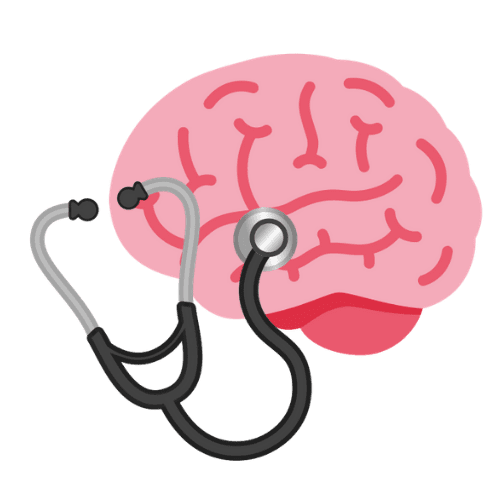If you were one of the many UK teenagers who received exam results this week, congratulations!
No matter what grades you ended up with, achieving any sort of qualification in a global pandemic, and the impact that has on your education, is absolutely commendable. I don’t think I could have done it!
Did you also find out that you have a place at medical school?
Welcome! The next few years will be tough – I won’t lie. You will be pushed to both your physical and mental limits, juggling placement, studying, early mornings, late nights, and every extreme of the emotional spectrum.
However, I hope that it will also be one of the most rewarding periods of your life. The experience of helping others at their most vulnerable, and the sense of achievement from getting through all the aforementioned challenges, can’t really be beaten.
I’m now halfway through my time at medical school, and have finished my pre-clinical years – my days of 9-5 lectures are finally over! This was a tough time for me, largely because I went through the majority of it with undiagnosed ADHD.
The executive functioning difficulties that are central to ADHD definitely made organising myself, and fully engaging with my studies, a big challenge. My eventual success came about through a lot of trial and error, and at times I did feel like I wasn’t suited to medical school. I’ve since learned that your suitability for medical school has nothing to do with your ability to use a planner or rote-learn 1000s of flashcards.
Are you passionate about medicine? Then medical school is for you.
To save you from worrying about the same things I did, I’m going to share my top tips for starting medical school when you have ADHD.
Apply for DSA.
If you have ADHD, and it affects your ability to study in any way (such as concentrating in classes, keeping to deadlines, memorisation etc), you will likely be eligible for Disabled Students Allowance while you’re at medical school.
This is applied for through your funding body, who might also provide your tuition and maintenance loans.
But what is DSA? Put simply, it’s an allowance for things that will level the playing field, and give you a helping hand to keep up with your non-disabled peers.
I personally receive a laptop, printer and lecture recording equipment. My DSA also reimburses me for printing expenses like ink and paper, and it funds a specialist study skills mentor who I meet with once a week. I’ll additionally be receiving an amplified stethoscope soon to help with my auditory processing problems.
Best of all, you don’t have to pay anything back – it’s an allowance, not a loan.
Apply for extra time and rest breaks in your exams.
You might have already got extra time and rest breaks in your exams at school, in which case it should be fairly easy to get that carried over to medical school. Your school will be able to advise you on how to do that.
I received neither at school, as my ADHD was undiagnosed, so my DSA assessor recommended them in my report, which was sufficient evidence for my university to arrange these accommodations.
They have made a massive difference to my performance in exams at medical school. My ADHD means that I take longer to process information, and work out what I’m being asked to do. I also take longer to get words down on paper in an understandable way. My 25% extra time means that this does not disadvantage me in comparison to my peers.
The rest breaks are also brilliant. Some of my exams at St Andrews were quite long. I know from studying that I can only study in 40 minute maximum bursts, before I start to daydream or feel sleepy. I receive a 15 minute rest break per hour, and these allow me to take a ‘brain break’ without worrying about losing writing time.

Talk to your medical school.
You can register with Disability Services at your university, and they will usually make the medical school aware that you have a specific learning difficulty (SpLD).
It might also be a good idea to arrange an appointment with someone from Disability Services or your school, so you can talk to them about what support would particularly help you succeed in your studies.
Some ideas:
- Patience and understanding if you forget your stethoscope, or are late to a session
- Receiving lecture slides in advance of teaching
- Not working regular night shifts or on-calls, if fatigue is a problem for you
- Extensions on deadlines
- Permission to take a notebook everywhere, so you don’t have to rely too much on your memory
- Arranged or regular breaks when on placement, for a ‘brain break’ or to take your medication
Try and make friends with some of your more diligent peers!
I’m not suggesting you spend all your time with the crowd rumoured to live in the library, but it helps to have friends who will encourage you and keep you on track. Lots of us with ADHD hate structure, but also thrive on it. External motivation often works well for us – it’s why body-doubling is a popular ADHD focus strategy.
Not only can studious friends get you into good habits, they might also share their study materials with you – but I did always prefer to write my own ANKI flashcards.
Noise-cancelling headphones.
I’ve mentioned before that anything can distract me when I’m supposed to be studying, from the sound of the breeze to the hum of a fridge. I can’t fall asleep if my flatmates are so much as whispering in the kitchen next door, and likewise whispering in the library does my nut in.
I can’t expect the world to be silent when I need to study though, so last September I used some of my student loan on possibly the best investment of my life: noise-cancelling headphones.
I bought mine from Amazon (these ones), but you don’t need to get anything too pricey – they just need to block out sound. The music quality, yes, can be good too, but the silence while I study is an immeasurable pleasure. I sometimes can’t even hear myself typing.
Ear plugs are also an option, and much cheaper. They were my go-to before I bought my headphones, but unfortunately a problem I have with my ears complicated things, and I now mostly avoid putting things in my ear canals. However, I have two pair of Loop Earplugs (these ones and these ones) that I do occassionally use when I’m at the hospital, and want to avoid overstimulation in noisy environments, but don’t want to listen to music.
You might not find small noises distracting now, but I promise you – when you’re on your third attempt at memorising the muscles of the hand, anything is more exciting to your brain!
So these are my top suggestions for those of you starting medical school soon.
I hope they make your life slightly easier, during what will be a busy time for you.I’ve shared those mostly relevant to your pre-clinical years, but I will definitely feature more of what I’ve learned soon.
If you have any tips (or questions) to share with your peers, please comment them down below!
And of course – best of luck to both new medical students, and those returning for another year!
How do you study at medical school?
You can comment on this post, or check out our social media links, and anonymous submission form.


Hi
I’m a student nurse with ADHD and I have really enjoyed your posts and have found them very helpful!
Do you mind telling me what stethoscope you were provided with?
Thanks in advance!
Hi Kelsey, I have a Littman 3M Core stethoscope – it is very similar to the Cardiology IV stethoscope, but has the digital attachment for amplification. This is a link to it on Amazon with reviews: https://amzn.to/3p7lErQ.